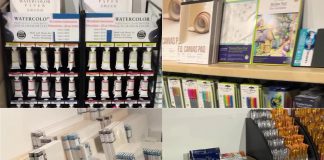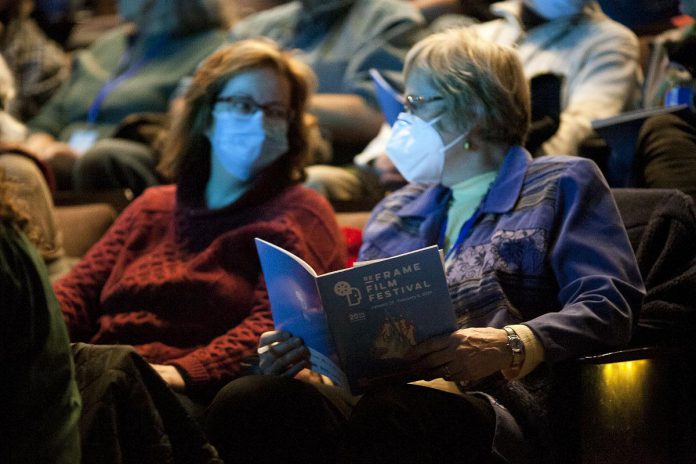
The annual ReFrame Film Festival is dedicated to inspiring actions of social justice, and there’s no better way to inspire than to lead by example.
From venue access and captions to sensory kits, resources, and pay-what-you-can pricing, the 2025 festival will be accessible and inclusive of all who want to engage with the 50-plus thought-provoking film documentaries, Q&As, panel discussions, and workshops.
“It may never be possible to reach a place of full accessibility, full inclusion, and full justice, but we really believe that it’s critical to continue to strive for those things,” says executive director Kait Dueck. “There’s always more that we’re learning, and we know that we can always do better, but we really feel that important arts and important ideas should be available to everyone and, as a result, we are constantly seeking to find barriers to access to dismantle them.”
For the second year in a row, the 2025 ReFrame Film Festival will be delivered in a hybrid format, with the in-person festival taking place in downtown Nogojiwanong/Peterborough from January 23 to 26 and the virtual festival held from January 27 to February 2.
The hybrid delivery alone supports the festival’s mission of breaking down barriers, as the virtual festival can be accessed by anyone across Canada with an internet connection and computer or phone. Most of the films in this year’s lineup are available with subtitles or open or closed captions.
The ReFrame film guide clearly indicates these options, as well as which films are only partially captioned and those films for which neither captions nor subtitles are available. The guide will also indicate when Q&As, panels, and livestream events are available with either open or closed captions, ASL interpretation, and/or CART (real-time captioning).
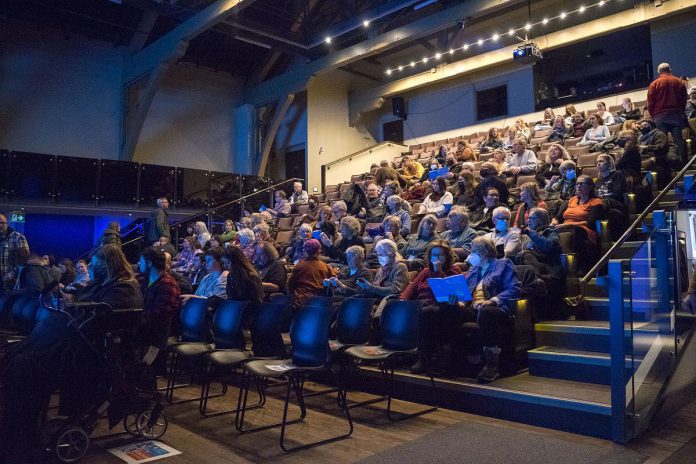
Those who are attending the festival in person will find the screening venues, Showplace Performance Centre and Market Hall Performing Arts Centre, are both up to Accessibility for Ontarians with Disabilities Act (AODA) standard with wheelchair accessibility and elevators (although the balcony seats at Market Hall are not accessible). Both venues offer assisted listening devices, while ReFrame also provides sensory kits for those who require fidget gadgets, sunglasses, and/or ear plugs.
“The new projector at Market Hall has 20,000 lumens, which is a lot and it’s very, very bright,” says Dueck. “It’s wonderful for folks who have a hard time seeing as it really improves the experience for them, but we like to offer some tangible physical supports for disabilities or sensitivities that may not be commonly considered.”
There is also a safe space available in the Cogeco Studio on the lower level of Showplace Performance Centre. In the studio, lights will be lowered, and films will be shown on smaller screens with lowered volume until 8 p.m. each day of the festival.
“If people bring their children who need to run around, or they find the theatre experience overwhelming for any number of reasons, including social anxieties or over stimulation, that room is always available for folks as a safe space,” Dueck says. “If it’s ever a bit busy down there or we have a panel going on, we will find you a safe space backstage.”
Given that a number of the films in the lineup can be emotionally challenging or triggering, warnings have been provided on the film listings for content that is graphic or intense. Such content warnings may not be inclusive of all content viewers wish to avoid, so audience members are always welcome to leave the theatre at any time during the screening if they encounter triggering content.
Dueck notes that at each screening, ReFrame will also have “active, supportive listeners so folks can have a safe ear to process some of their emotions and responses.”
ReFrame has curated a list of community resources and contacts for those who may need additional support surrounding the challenging film topics. This list can be found at reframefilmfestival.ca/accessibility/.
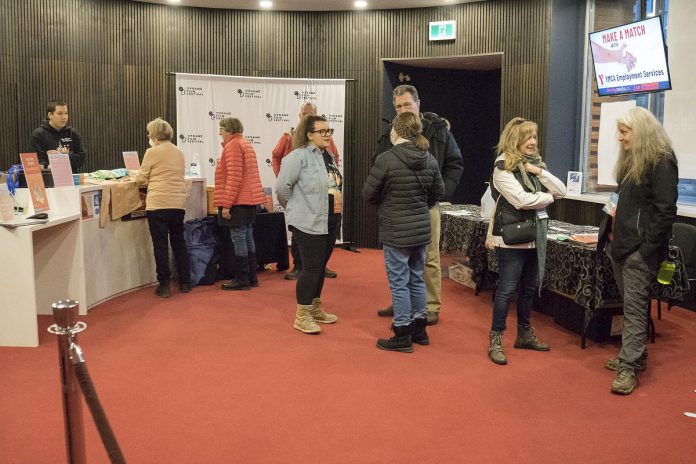
In addition to content warnings, ReFrame’s creative director Eryn Lidster has added tone notes (such as “hopeful” or “inspiring”) to the guide to describe each of the films.
“There’s a lot of tough things happening in the world, but there are just as many stories of resilience and hope, and we really try and balance the program with joyful and beautiful stories and content,” says Dueck. “We really make an effort to point that content out to audiences so they can curate an enjoyable and safe experience for themselves.”
For those facing economic barriers, ReFrame has a universal, no-questions-asked, pay-what-you-can policy for every individual film screening both online and in person. For the first time, this year viewers can pre-book their in-person individual ticket at a pay-what-you-can price online in advance rather than at the box office.
“We do feel that it can be less accessible to have to stand in front of another human and say you would like to pay less than what is suggested, whereas it feels emotionally safer to be able to click online anonymously,” says Dueck, noting people who are able can also pay more than the suggested amount online. “Those who may have barriers to access on the basis of income can then be supported by community members who may have more privilege in that area, or who may have more expanded finances to be able to do so.”
Through the Community Access Pass program, ReFrame also provides complimentary tickets to partner organizations that are working with vulnerable communities.
“We share tickets with those groups to ensure that it’s equity-deserving people specifically that receive the direct complimentary passes and tickets,” says Dueck. “It’s local organizations that work directly with vulnerable populations or underprivileged populations to get those ticket into the hands of the folks who need them the most and who are most deserving.”
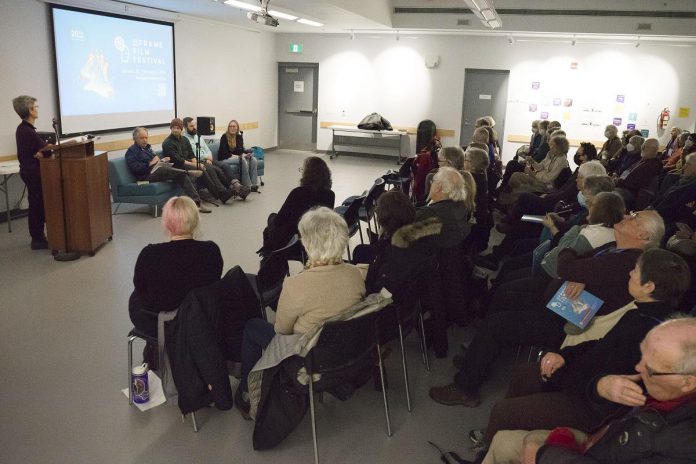
Given that accessibility and justice is at the core of ReFrame, the staff and board have approached the concepts both actively and philosophically with training and discussions around diversity, equity, and inclusion.
This has been done through workshops hosted by ReFrame that invite other local arts organizations to gather and discuss ways to better serve the community.
When it comes to inclusion of Indigenous communities, ReFrame has changed its land acknowledgement this year in response to community conversations and feedback from local Elders.
While ReFrame strives to create an accessible festival experience for everyone, it is always open to suggestions for improvement.
“One thing we try to do with our audiences is ask them to let us know how we can do better,” says Dueck. “As much as we try and educate ourselves and anticipate what folks’ needs might be, the best way to learn is to hear directly from people. If we know what your barriers are, we will strive to remove them for you.”
If you are experiencing barriers to accessing the festival, email Dueck at kait@reframefilmfestival.ca.
For a guide to all the films screening at the 2025 festival and to purchase passes, visit reframefilmfestival.ca. Follow ReFrame on Facebook and Instagram for updates and last-minute schedule changes.
kawarthaNOW is proud to be a media sponsor of the 2025 ReFrame Film Festival.


























